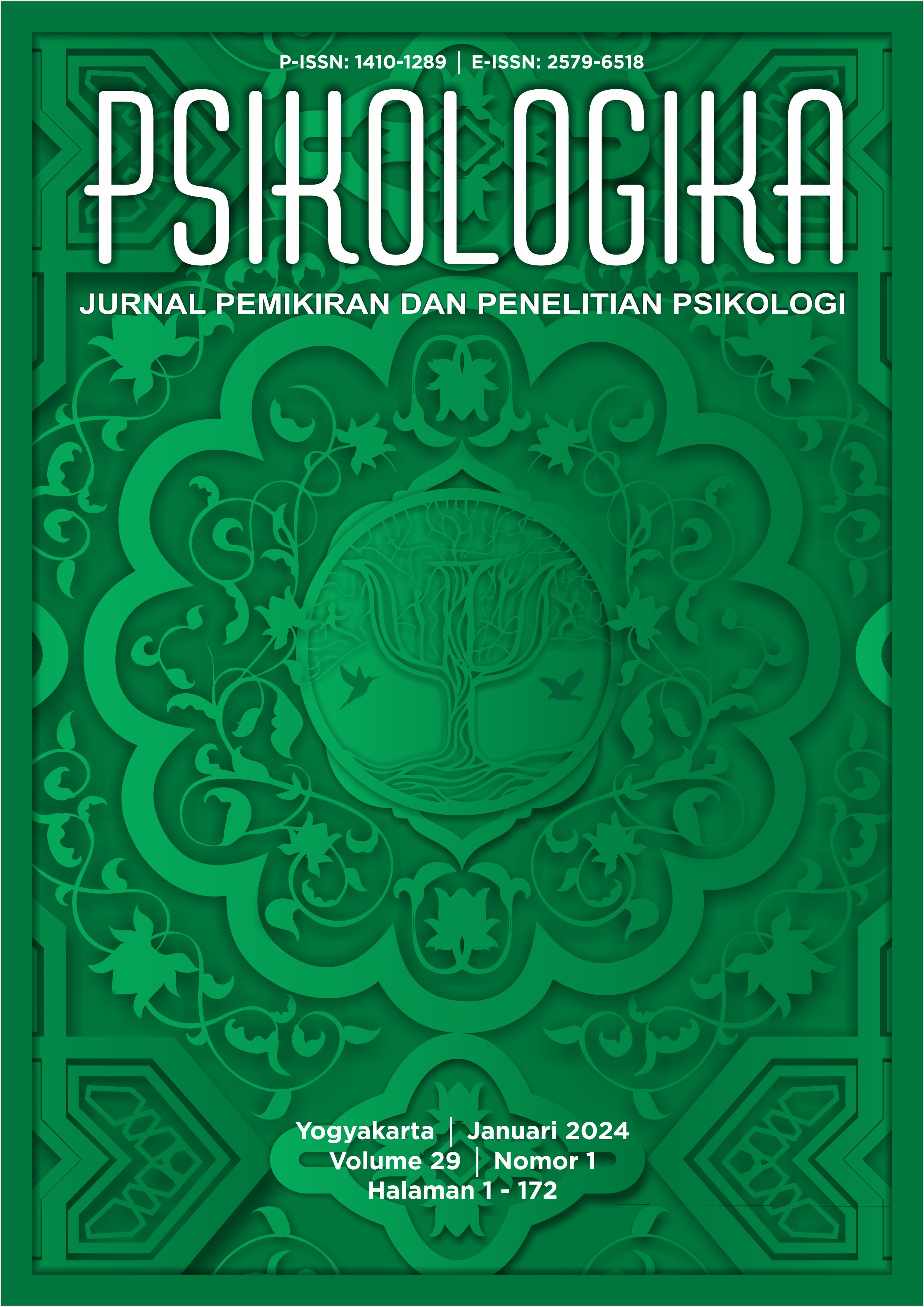Main Article Content
Abstract
This research was prompted by the low academic achievement of students. This research aimed to determine the contribution of self-regulated learning, self-awareness, and spiritual intelligence using an ex post facto quantitative method. The population comprised 170 students from Vocational High School Muhammadiyah X in Yogyakarta City, with 81 selected using cluster random sampling. Data were systematically collected through the utilization of instruments designed to assess self-regulated learning, self awareness, and spiritual intelligence. Additionally, academic achievement data were acquired from Semester Final Examination scores. The results showed that self-regulated learning, self awareness, and spiritual intelligence made a highly significant contribution to academic achievement Moreover, the combined influence of self-regulated learning, self-awareness, and spiritual intelligence also significantly contributed to the variable.
Keywords
Article Details
Copyright (c) 2024 Yuzarion, Akhmad Muhammad Diponegoro, Akhmad Fajar Prasetya, Asvian Taufikurrahman, Afdila Ilham Isma, Irfan Anari

This work is licensed under a Creative Commons Attribution-ShareAlike 4.0 International License.
Authors who publish with this journal agree to the following terms:
- Authors retain copyright and grant the journal right of first publication with the work simultaneously licensed under a Creative Commons Attribution-ShareAlike 4.0 International License that allows others to share the work with an acknowledgment of the work's authorship and initial publication in this journal.
- Authors are able to enter into separate, additional contractual arrangements for the non-exclusive distribution of the journal's published version of the work (e.g., post it to an institutional repository or publish it in a book), with an acknowledgment of its initial publication in this journal.
- Authors are permitted and encouraged to post their work online (e.g., in institutional repositories or on their website) prior to and during the submission process, as it can lead to productive exchanges, as well as earlier and greater citation of published work (See The Effect of Open Access).




